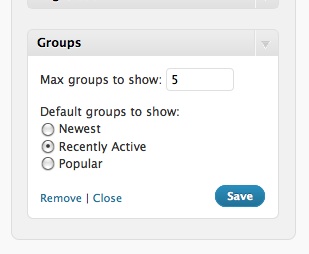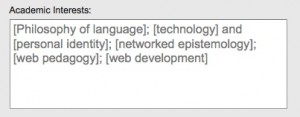BuddyPress comes with several WordPress widgets, among which are the Groups and Members widgets that you see on the CUNY Academic Commons home page. This plugin makes those widgets a little more customizable, allowing users to specify which of the three tabs (Newest, Active, or Popular) they’d like to be each widget’s default view.

If you’ve got a blog on the CUNY Academic Commons, you can start using this feature right away. Just look in Dashboard > Appearance > Widgets. Be sure to select the Groups/Members widgets whose descriptions say “Enhanced”.
You can download the plugin for use on your own installation of WPMU/BP here: enhanced-buddypress-widgets. It’s also available from the WordPress plugin database: http://wordpress.org/extend/plugins/enhanced-buddypress-widgets/.


